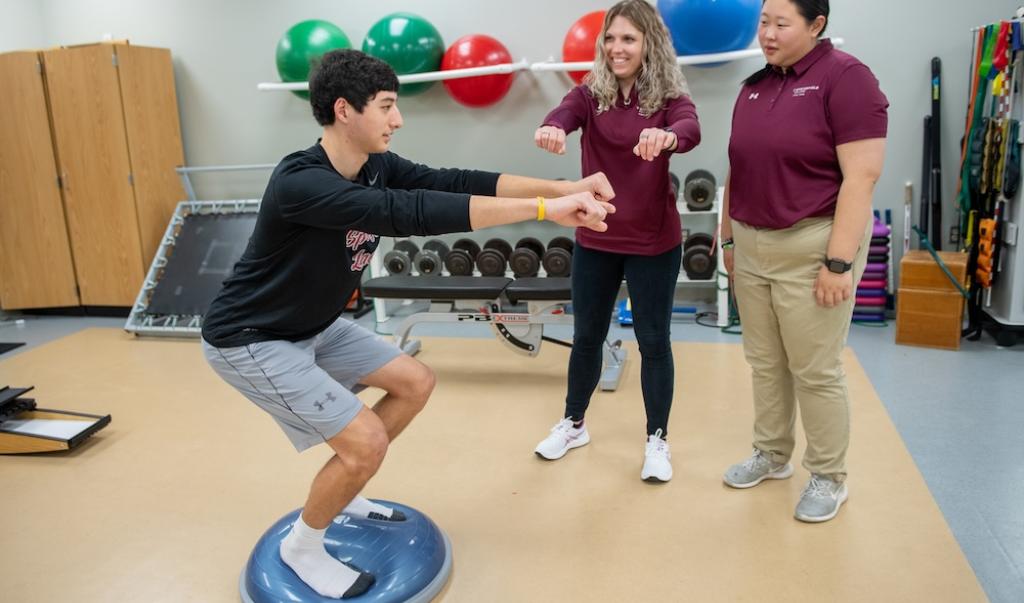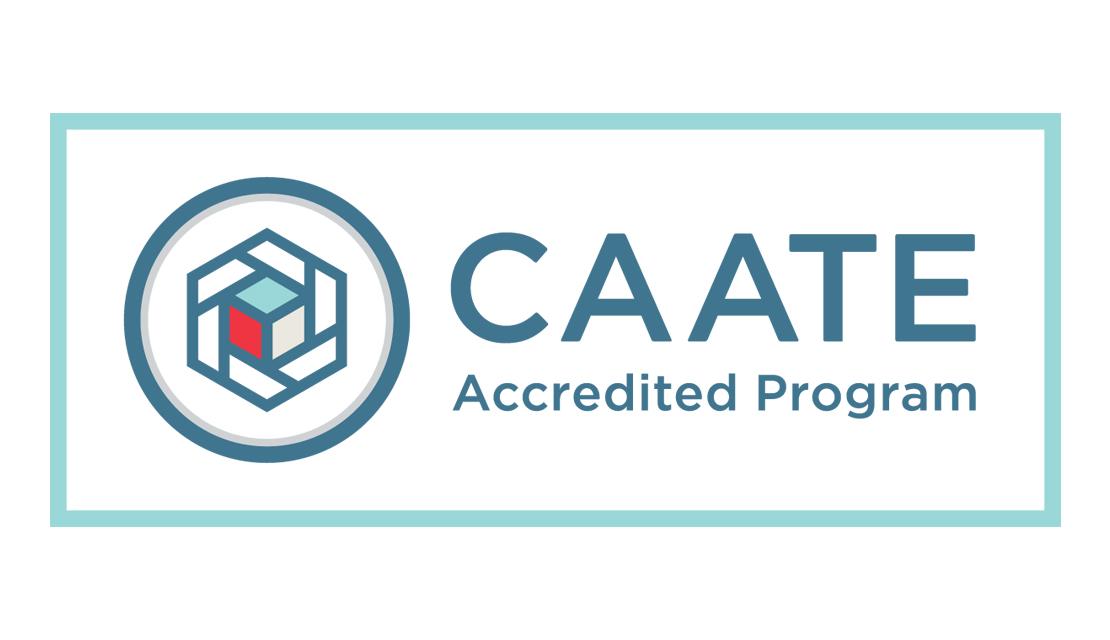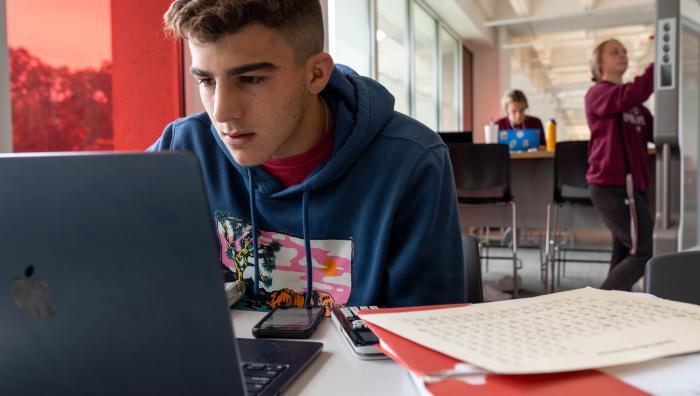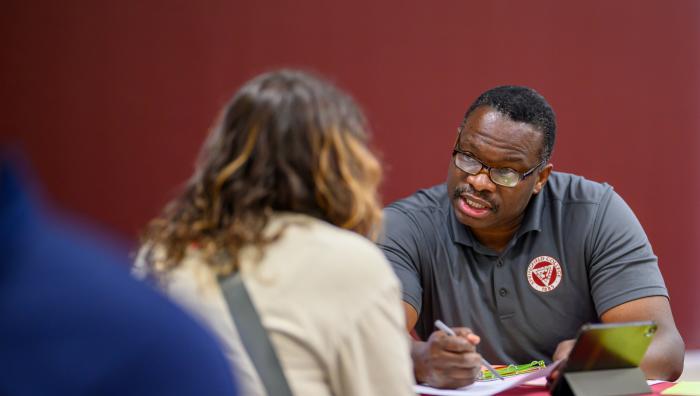Athletic Training
Bachelor of Science and Master of Science Combined Degree Program
| About This Program | |
|---|---|
|
Program Contact
Matt Mills |
|
|
Review our admissions requirements |
|
Curriculum and Delivery
|
|
| Graduate Success and Careers | |
| Paying for Your Education | |
|
Looking for graduate programs?
We also offer a Master of Science in Athletic Training |
|
|
Upcoming Events
Check back soon for upcoming events! |
|
|
Follow us on Instagram |
|

Future Athletic Trainers Develop Here.
Springfield College offers an accelerated five-year Bachelor of Science in Pre-Professional Athletic Training and a Master of Science in Athletic Training Degree program. This program is designed for students who wish to gain the skills, knowledge and experiences needed to provide quality health care to those engaged in physically active lifestyles. Emphasis is placed on minimizing risk of injury/re-injury and illness, improving functional outcomes and enhancing/supporting safe participation and return to activity, sport and work. Fully encompassing the College’s Humanics philosophy, the program emphasizes that health and learning are best gained through an approach that unifies spirit, mind, and body. The typical Springfield College-educated athletic trainer is prepared to utilize a holistic approach in providing healthcare, leadership and service within the community.
Upon successful completion of this accelerated five year program, students earn a BS in Pre-Professional Athletic Training and a MS in Athletic Training. The program is divided into two phases:
- Pre-professional phase: Complete the new core curriculum, Pre-Professional Athletic Training coursework and related requirements
- Year 1-3: Engage in courses required to complete the undergraduate degree in Pre-Professional Athletic Training coursework.
- Professional phase: Includes four semesters and two summers of graduate-level professional athletic training education and clinical experience
- Year 4: Beginning in the summer term of year 4, you'll engage in graduate level coursework. By the end of the year, you'll graduate with a BS in Pre-Professional Athletic Training having already completed year one of your required professional level athletic training coursework.
- Year 5: Continue in graduate athletic training courses in the summer term and complete the program in May of your fifth year.




